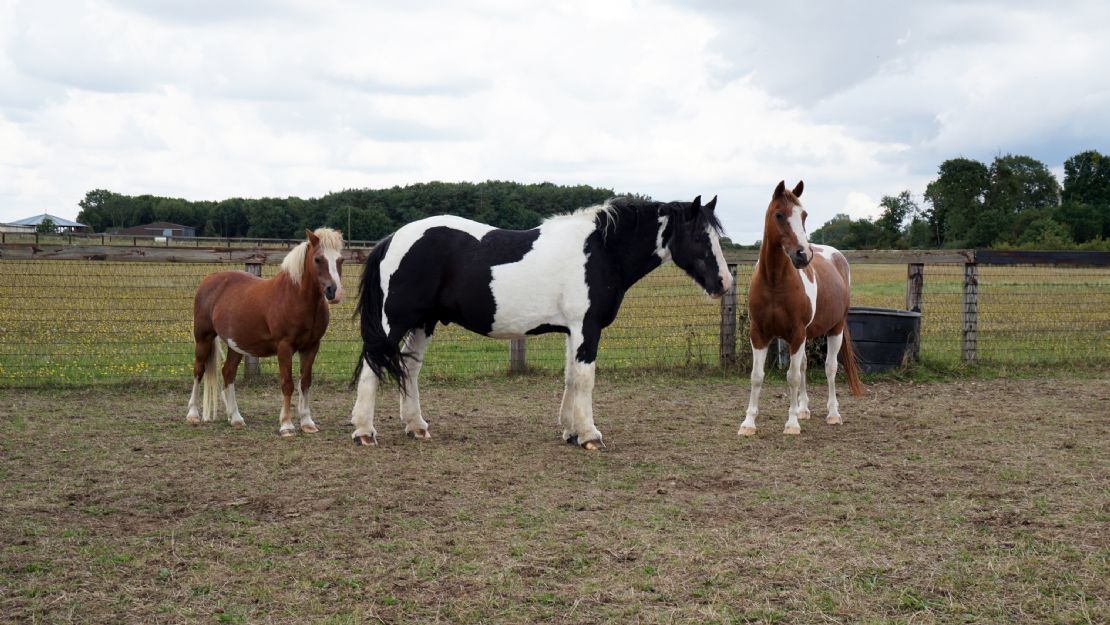Why do we recommend feeding horses from ground level?
How does the horse's jaw work? What happens if horses eat above ground level? Read the article to learn more...

There are many causes of colic of which sand is just one. It occurs when ingested sand accumulates in the large intestine. It can caaltered ain a proportion of sand and these coarser, heavier grains sink to the lower parts of the large colon. Your vet can help with diagnosis as there is a distinct line across the top of the sand which can show up on an ultrasound, for instance, or they may be able to hear the grains of sand with a stethoscope. Sand colic is a serious matter and can be fatal. It causes an impaction. Surgery may be possible but very expensive. It is better to adopt a strategy to avoid sand accumulating.
Very often, good doers are kept on "starvation paddocks" which are grazed almost to nothing and the horse will pull up roots covered in soil as they try to graze. This increases the risk of sand colic. And some horses seem to choose to eat soil or sand. Ensure the horse has adequate forage. Lower calorie alternatives to hay can also be used for good doers, such as Organic Lucie Stalks. Well-soaked PuraBeet increases bulk, aids hydration and can help movement of ingestate through the gut. Daily feeding of linseed has been demonstrated to aid removal of sand (S. Sarkijarvi et al, Finland, EAAP 128, 2010). Instant Linseed fed at up to 75g/100kg could make a useful contribution to maintaining a healthy gut for susceptible horses. An economical mash feed for an occasional boost to sand removal could be a bucket of soaked PuraBeet with a mugful of Instant Linseed fed in place of the usual feeds one day a week or for a few consecutive days a month. proportionately less for ponies as these amounts are for an average 5-600kg horse. If you think sand could be causing your horse discomfort, you will need to consult your vet.
For further feeding advice, contact the Simple System Feed Line on 01728 604 008 or email info@simplesystem.co.uk
How does the horse's jaw work? What happens if horses eat above ground level? Read the article to learn more...
We're thrilled to be adding an exiting new event to the calendar for 2026!
Horses’ teeth change throughout their lives - they are continually growing and continually wearing, as they chew and grind their grazing and forage.